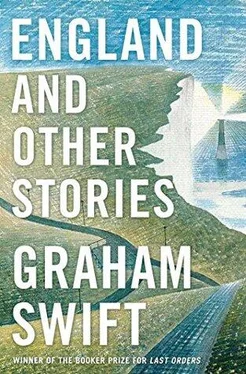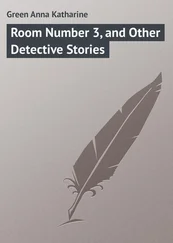‘I’ve got a thermos inside, man. Black coffee. Want some?’ The voice was normal now — normal with its Yorkshire tones.
He’d had coffee at home, minutes ago, and there’d be more at the station. But it seemed wrong not to accept the man’s gesture of gratitude. There had to be a gesture, a little ritual. Besides, he was curious.
‘Okay.’ He looked at his watch.
‘I know. You have to — clock on.’
‘Be on watch,’ he said, a little stiffly.
‘Aye aye.’
He vaguely allowed for the fact that in Yorkshire, so he believed, they said ‘aye’ for ‘yes’. All the same.
‘A cup of coffee,’ the man said. ‘Tain’t every day, is it?’
He had to agree, even give a yielding chuckle. ‘No, it’s not every day,’ he said, not really knowing exactly what the man meant. But, true, it wasn’t every day.
The man groped inside the car, first graciously producing the folded jacket from the passenger seat, then a thermos. He shook it, judging the contents, close to his ear. He unscrewed a pair of cups, one inside the other.
‘Black coffee. While I’m driving, to keep me awake. Same as you, I suppose, when you’re — on watch.’
Like the rest of the world, the man had a picture of a coastguard as a solitary figure, eyes glued to the horizon, telescope to hand, maintaining a sentry-like vigil. It wasn’t quite like that. It was a big station. A huddle of white buildings, with masts and dishes, beneath the tower of a decommissioned lighthouse. There was a rotating watch of staff. At any one time there’d be at least two on duty. There was an array of monitoring and communications equipment.
Never mind. It was a coastguard station. It was an outstandingly beautiful, dramatic section of coast. People came at weekends and for holidays. He was there all the time. He was exceptionally lucky, in his work, in his life. Ruth, the job, the two kids who’d made him, twice over, a grandfather — though they were still kids in his mind. The only cloud, it seemed, was retirement. Having to stop it all one day. He was fifty-three. The man was — what? He sometimes seemed young, then not young at all.
‘Yes,’ he said. ‘Coffee helps.’
‘Black coffee,’ the man said. ‘I never know whether to make a joke. And I never know whether to make a joke out of the black or the coffee. See my face, man? Black or coffee?’
He tried to look obtuse and passive. But there was something he genuinely didn’t understand.
There was a pause while Exmoor reasserted its presence. Then the man cackled. It was the shoulder-shaking, oddly engaging parrot-laugh.
‘I’m a joker, man. My business. I’m a comedian.’
That in itself seemed a possible joke, a possible trick. I met a strange man today, he was quite a comedian.
‘A co-me-di-ahn!’
And now the man — or one of his personas — was back at full frantic tilt again, even while pouring not very warm-looking coffee. He had no choice, nor did Exmoor, but to listen.
‘Ah coom all the way from Yorkshire, from fookin’ West Ridin’, just to get rescued by a coastguard, a fookin’ coastguard , on Exmoor. Serious. Exmoor. What’s a coast guard doing on fookin’ Exmoor? Ilkley Moor, me. Ah never knew you ’ad moors down ’ere an’ all. Ilkley Moor bar tat. Ilkley Moor bar mitzvah! Ee but ah do luv Ilfracombe. Il-frah- combe . Ave ah said? Ah combe from Yorkshire. Ee bah goom! But ah tell yer what they do ’ave on Exmoor. Apart from coastguards. Fookin’ deer. Did yer know? ’Erds of fookin’ deer, and ’erds of fookin’ coastguards. Ave ah told yer me deer joke? It’s the one where ah tell it and yer all go, “Dear oh dear oh dear.”’
It was astonishing. It was a performance, an unabashed performance — in the middle of nowhere. It was utterly disconcerting, but now, at least, he understood. And, actually, he was laughing, he couldn’t help it. A comedian.
The man saw that he understood. He slowed down, became near-normal again. He grinned. He held out his hand once more, as if he had to introduce himself twice.
‘Johnny Dewhurst,’ he said. Then, grasping his coffee in one hand, he slipped the other inside his jacket and pulled out a card. It said ‘Johnny Dewhurst, Comedian and Wayfarer’. Underneath, in smaller print, were the words ‘All Engagements Gratefully Appreciated’. And to one side there was a picture of a clown, a standard circus clown — big feet, big nose, made-up face. The picture bore no resemblance to Johnny Dewhurst (if that was his actual name). On the other hand, you could see that, with the topiary of hair and mobility of face, not to say voice, he could play the clown if needed — if he wasn’t doing it already. And who knows what comic paraphernalia might be stored in the boot of his car?
He laughed his parrot-laugh again. It seemed like a laugh of conspiracy, of complicity now, because his audience had laughed too.
‘Il-frah-coombe!’ The personas switched again. ‘Tonight I play Ilfracombe. Then I play Barnstaple. Baahrn-stable! I sleep in de barn or I sleep in de stable? Barnstable not very far, I tink. Then I play Plymouth. That far enough for Johnny. That like Land’s End. I next play Verona. No, that different gig. That Kiss Me Quick or someting. By Cole Porter. Wid name like that, he must be black man ! Night before last I play Yeovil. Yo-Ville! I say, “Yo brother, this my kind of town, this where Johnny belong.” But they don’t understan’ me, they don’t clap very much. Then they send me on to Taunton. They send me to Tawny Town ! I say, “This some kind of a joke ? This some kind of a rayssiahl ting?”’
He couldn’t help but laugh, whether or not he was meant to. But at the same time he felt that it didn’t matter whether he laughed or not, since he understood it now — it was rather like the worn-smooth wrinkled leather coat — the man was inured to the reactions of audiences, be they friendly, hostile, hard-to-please or indifferent. Or perhaps absent.
But the man laughed too.
‘How you going to be my straight-man, man, you keep laughing like that? You have a name? You save my life, you haven’t told me your name.’
‘Ken,’ he said. Now he too held out his hand a second time, but with concealed caution. He desperately wanted to avoid giving his second name. It was Black. He was Kenneth Black. Lots of people are called Black, but he shuddered to think of the comic repercussions.
‘Johnny Dewhurst and Kenny — Coastguard. I see it, man. I see it!’
He hid his relief. ‘Is it your real name, “Johnny Dewhurst”?’
‘Hey, you tink I’s a liar, man? You tink I gives you joke name? I have a card made up with some joker’s name?’
The shoulders shook, he hee-hawed and he was off again. It bubbled out of him. It was hard to see where the one thing stopped and the other thing began. He’d always supposed that comedians (was there truly a section of humanity called comedians?) were really hard-nosed crafty individuals. There was a gap between the act and the person. But with this man you couldn’t tell. There even seemed to be something wished-for in the confusion.
‘Johnny Dewhurst, it no joker’s name, it a butcher’s name. I say, “First Johnny tell de joke, then — he get butchered for it!”’
He reached inside his jacket again, pulled out a folded slip of paper and handed it over. It was a flyer, a flyer for a tour—‘The Johnny Dewhurst Tour’. It was a list, a remarkably long one, of places and dates. The places criss-crossed and circumscribed England. The tour began — or had begun — in Scarborough, then had taken in several northern locations, then worked circuitously south. It had networked the Midlands, then struck south-west. It had touched Lincoln, Nottingham, Derby, Shrewsbury, Rugby. . as well as towns he couldn’t exactly place. The first date was in late June and there was still over a month to go. It had still to track the length of the south coast and to reach such venues as Lowestoft and Skegness. It was a list of theatres, corn exchanges, seaside palaces and pavilions, and indeterminate halls. And it must be a very ambitious list, because he’d never heard of Johnny Dewhurst, though he’d met him now, and at many of these places, some of them even having a faint hint of glamour, Johnny Dewhurst must be very far from star billing—‘on tour’ as he was — he must be a very short spot a long way down the programme.
Читать дальше












